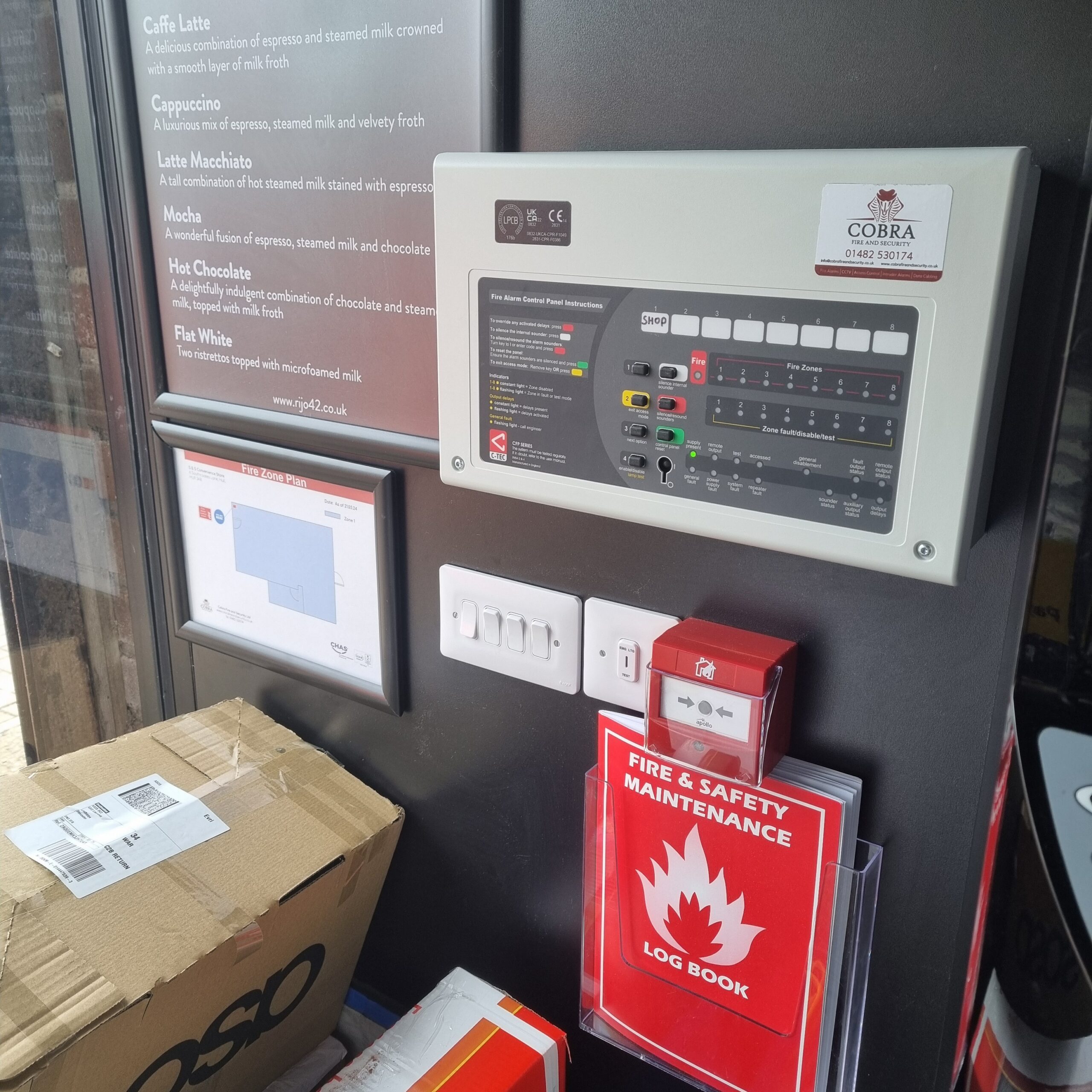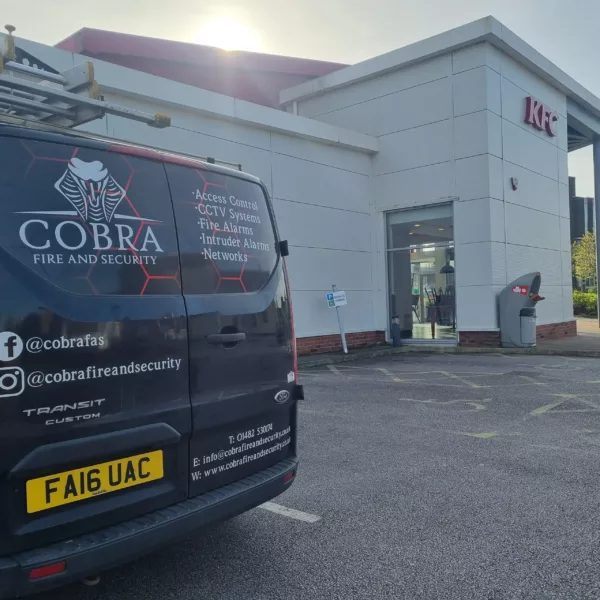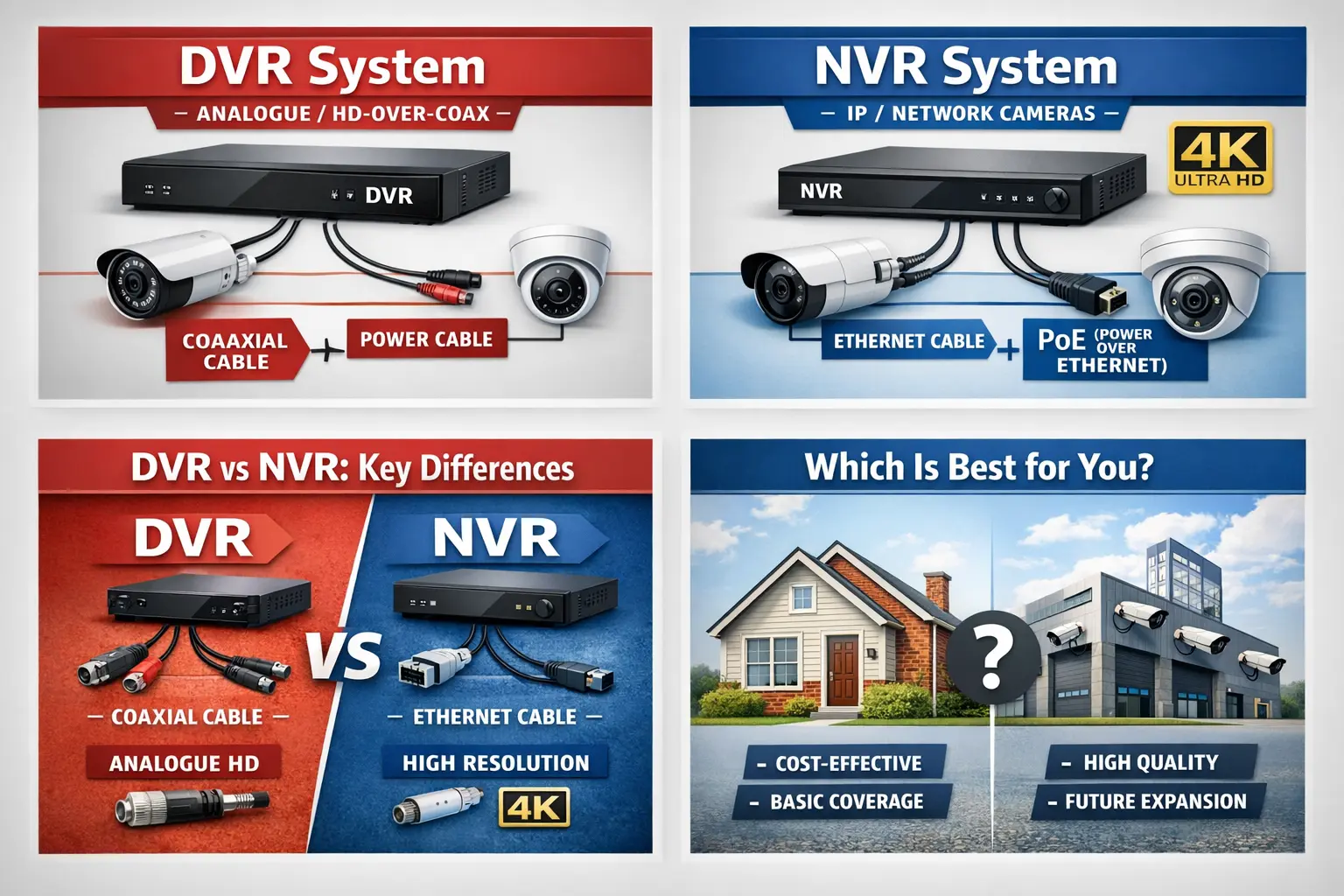
How Do Fire Alarm Systems Work? A Comprehensive Guide
Fire alarm systems play a crucial role in safeguarding lives and property by providing early warnings of potential fire hazards. But how does a fire alarm system work? In this guide, we’ll break down the components, operation, and importance of these systems to give you a clear understanding of their functionality.
Components of a Fire Alarm System
A fire alarm system consists of multiple components working together to detect fire, alert occupants, and initiate emergency responses. The key components include:
Fire Detectors
- Smoke Detectors – These detect airborne smoke particles using either ionization (for fast-burning fires) or optical (photoelectric) technology (for slow, smoldering fires).
- Heat Detectors – These monitor temperature changes and activate when a rapid or excessive rise in heat is detected.
Alarm Notification Devices
Once a fire is detected, the system activates alarm devices to warn occupants. These include:
- Audio Alarms (Sounders & Bells) – Emit loud noises to alert people to evacuate.
- Visual Alarms (Strobes & Flashing Lights) – Provide visual cues for individuals in noisy environments or those with hearing impairments.
Fire Alarm Control Panel (FACP)
The control panel acts as the brain of the fire alarm system, receiving signals from detectors and initiating appropriate responses, such as triggering alarms or sending alerts to emergency services.
Manual Call Points (Break Glass Units)
Manual call points allow individuals to manually trigger the fire alarm system in case of an emergency, ensuring a quick response even if detectors haven’t been activated yet.
Auxiliary Functions & Interfaces
Some advanced fire alarm systems include additional safety integrations, such as:
- Automatic fire suppression activation (e.g., sprinklers)
- Gas shutoff controls to prevent explosions
- Ventilation system adjustments to reduce smoke spread
How Does a Fire Alarm System Work?
Fire alarm systems operate through a systematic process to ensure maximum safety:
Fire Detection
- Smoke, heat, or flame is detected by sensors.
- The fire alarm control panel receives input from detectors.
Alarm Activation
- If fire conditions meet the system’s criteria, the control panel triggers alarms.
- Audible and visual alarms notify occupants to evacuate.
- Some systems automatically alert emergency services.
Evacuation & Emergency Response
- Occupants follow designated fire escape routes.
- Firefighters are alerted (manually or via automated connections).
- Fire suppression systems may activate to control the spread.
Types of Fire Alarm Systems
Different buildings require different types of fire alarm systems. Some common categories include:
- Conventional Fire Alarm Systems – Suitable for smaller buildings; divides the building into detection zones.
- Addressable Fire Alarm Systems – Used in larger buildings; provides specific detector locations.
- Wireless Fire Alarm Systems – Uses radio signals, reducing wiring needs.
Importance of Regular Fire Alarm Maintenance
To ensure a fire alarm system remains reliable and compliant, routine maintenance is essential. Regular fire alarm testing and servicing help prevent malfunctions and guarantee that alarms function when needed.
Fire Safety Compliance & Regulations
Fire alarm systems must adhere to UK fire safety regulations, such as:
- BS 5839 – The British Standard for fire detection and alarm systems.
- The Regulatory Reform (Fire Safety) Order 2005 – Establishes fire safety responsibilities for businesses.
For a detailed look at fire alarm categories, check out our dedicated guide.
Conclusion
A properly functioning fire alarm system is vital for fire safety. At Cobra Fire and Security, we specialize in fire alarm installation, maintenance, and compliance services. Contact us today to ensure your premises are fully protected against fire hazards.
Reviewed: 18/02/2025 Our articles are reviewed regularly. However, any changes made to standards or legislation following the review date will not have been considered. Please note that we provide abridged, easy-to-understand guidance. To make detailed decisions about your fire safety provisions, you might require further advice or need to consult the full standards and legislation.
Share this article
Written by : Michael Winter
Follow us
Latest articles
February 13, 2026
February 13, 2026
February 13, 2026





